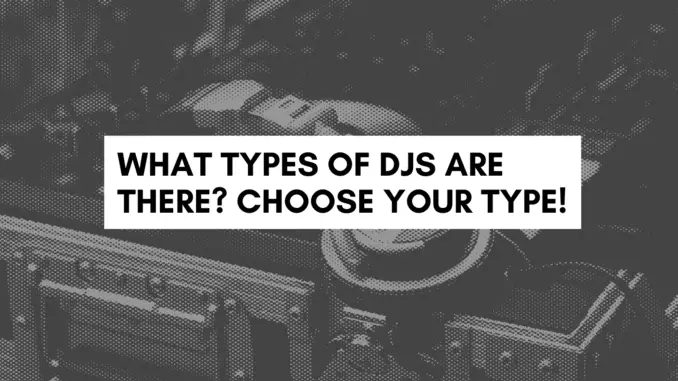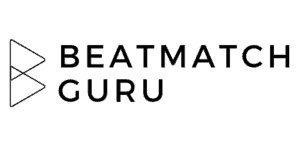
There are many types of DJs out there in the world today. Many are content with just the art of DJing as a hobby, but for the ambitious there can be a lot of money to be made.
What Type of DJs Are There?
The main types of DJs include, bedroom DJs, bar DJs, club DJs, radio DJs, wedding DJs and mobile DJs. Different types of DJs come with different challenges, business skills and musical tastes. Some DJs progress from bedroom DJs and then become more commercially focussed to make a hobby into a money making passion.
When I first started DJing I knew I wanted to DJ electronic music in front of people who love the music. Other DJs know they want to be radio DJs, and if you don’t that’s ok. Check out the below advice to help you along your DJing journey.
Bedroom DJs
Bedroom DJs are generally “hobbyist” type DJs with a view to potentially becoming a DJ in a bar or even the next Calvin Harris in the not so distant future.
The benefit is that bedroom DJs can literally play any type of music at this stage without annoying anyone or destroying a dance floor. Apart from annoying the neighbours.
Usually starting out as a DJ, bedroom DJs are getting to grips with the technicalities of DJ equipment and beatmatching.
The main focus is practicing your craft and getting better by way of feedback from people on the quality of your mixes. Listen back to your own mixes and being honest with yourself pin pointing areas of improvement.
Taking a basic online course on how to mix will more than likely get you to the point of how to mix very well a lot quicker than learning yourself.
Equipment is a lot cheaper in price these days so the threshold to getting hold of digital DJ equipment is much lower. A lot of people have laptops, phones or tablets too, which makes it a lot easier to connect to DJ controllers for example.
Expect bedroom hobbyist DJs to be using something like a DDJ-200 or a Hercules Starlight DJ controller as an entry point.
To get to the next level and DJing out of the house and into live event situations it’s really important to get going with the below areas:
- Mastering of your DJ mixes for better quality audio
- Networking e.g. face to face, online forums
- Promotion of mixes e.g. on Mixcloud
- Marketing materials e.g. business cards, website
Get all of these things right and you’ll be onto the next phase of your DJing journey and maybe even career.
Some DJs stay at this stage and that’s ok, DJing doesn’t have to be a career and can be super enjoyable in the comforts of your own home.
I think though, if you’re talented why not share that with the world?
Bar DJs
This type of DJ is usually the local DJ that gets the music rolling in small bars in your home town or bustling bar scene.
Generally playing a sorts of music depending on the sound and vibe that the bar owners want to portray. Certain bars want to attract certain demographics of people so this can sometimes dictate the clientele that turn up, drink and dance.
At this stage bar DJs have a competent level of DJ skill and can put together a decent enough DJ set to get the atmosphere and vibe of a bar to a great level.
Bar DJs can usually be expected to bring their own DJ equipment, in some cases though there’s DJ equipment ready for you to use. I’ve seen many a DJ turn up with a laptop and DJ controller setup, and equally many a DJ have the opportunity to DJ with an existing setup of a mixer and CDJs.
Expect to see a bar DJ use a DJ controller of a Pioneer DDJ-400 and higher e.g. DDJ-800, or Pioneer CDJs and a 2 or 4-Channel Mixer.
Getting to know the bar owners well will help you to network and maybe DJ in other bars.
Continuing to promote yourself as a DJ through networking, mixes and your website will certainly put you in good stead for getting more gigs in bars and maybe more. Some DJs are happy to stay with DJing in bars and that’s ok.
If you have more aspirational goals, the practice in bars will give you that edge for when you migrate to DJing in larger clubs, bigger sound systems and in front of big crowds of people.
Club DJs
This is where things really hit new heights for a DJ. Potentially warming up for large name and even super star DJs that are really well known.
The music at this point is likely to be honed into a more specific genre and more than likely a set of sub genres e.g. House = deep house, funky house, soulful, disco etc.
It’s very likely that the reason you’re even DJing in a club and being featured on a lineup is that your networking and your fanbase has built up to give you that edge over other DJs that desire your position.
The pressure, although positive, helps you to keep your DJing skills and techniques to a high level. This is a great thing as keeping your skill levels high will help towards potentially getting a regular slot on particular club events or even a residency.
Equipment you can expect to be DJing on usually features two to four Pioneer CDJs and large DJ mixers such as the Pioneer DJM900NXS2 connecting it altogether. DJing with some solid headphones are essential too for protecting your ears and also being able to hear quality audio, check out V-Moda and Sennheiser HD-25.
Radio DJs
Radio DJs usually are professional DJs that play live gigs regularly in clubs locally and around the world.
Ranging from national to local county/state or town level radio, depending on how well known you are as a DJ can dictate which level of radio station that a radio DJ plays on.
National radio DJs are paid usually where as local level is more likely paid some money, if any at all.
Having the technical skills for mixing is essential for this role as a radio DJ, as sometimes you’ll be playing live DJ sets or at least pre-recorded DJ sets. In some cases radio DJs need to simply only switch between one to track to another with great flow.
Using other equipment as mixing desks and microphones will be a new learning curve if you’ve not come across this sort of equipment before.
Radio DJing requires confidence and great communication and presentation skills. Being able to speak clearly and present to a high level. This role as a DJ is great to practice presenting and DJing under pressure complimenting DJing live in a club or bar environment.
Tip: If you’re not into the idea of a radio DJ role yet and put off the thought of travelling to a radio station office, then consider podcasting a radio show and publishing on Mixcloud, Spotify, iTunes etc. Alternatively, some online digital radio stations allow you to DJ live from your own DJ setup with a laptop connecting to their radio station.
DJ Producers
Are you the next Calvin Harris or Steve Aoki?
Becoming a DJ Producer encompasses a whole different level of skills required to achieve this status.
Not only do you need to DJ to a very high level, but know your way around a musical instrument and recording studio type equipment.
For example, know music theory, chords, how to record instruments and vocals, plus know how to use Digital Audio Workstations (DAWs) is a must. The DAWs out there on the market include Ableton, Logic, Reason and Cubase for example.
The thing is with becoming a DJ Producer there’s a lot of business and marketing involved and before you get to this point you’ll be expected to be creating a very level of music production.
With practice and patience, over time it’s possible to get to a very high standard of producing and DJing.
I advise that if you want to go this route, then wholeheartedly go for it with everything you’ve got. Once you’re at the top of your game it’s possible to earn a lot of money and you’ll be DJing and producing a lot. Sounds amazing right?
To get going with this route, get the right skills in music, music production and DJing. Get a website, social media following and promote the hell out of yourself.
Eventually you’ll get noticed and when you do, either signing to a label or creating your own label is possible. Gaining a residency or regular gigs at high calibre clubs is usually a sign you’ve got to a high level in your career.
Wedding DJs
Believe it or not there’s a decent amount of money that can be made out of playing weddings, and fairly quickly.
Wedding DJs are usually expected to have their own DJ equipment and setup to bring to the wedding reception and wedding events that they play.
This can cost an initial outlay of money but is worth it in the medium to long term if this is something of a career change or even side income.
Basic equipment that can be expected to get hold of includes:
- Laptop
- DJ controller or CDJs
- DJ Lighting
- Speakers and Speaker stands
- Microphone
- Headphones
- Cables
Being a great wedding DJ consists of being able to read the crowd and hype them up to a point of getting them going on the dance floor. This is instead of just being a “DJ” at the wedding, with no one dancing until later when they’re really drunk.
Being able to play the music that the wedding organisers want is crucial to success and taking requests is not uncommon.
For the money and the amount of time that a DJ makes on a night can be very profitable once you’ve paid off your basic investment into DJ equipment, marketing and travel. Expect to travel around a bit to random locations which can sometimes bring with it some challenges which will make resilient.
Mobile DJs
Mobile DJs are very similar to wedding DJs in the fact they are required to usually have their own DJ equipment or at least access to some DJ equipment that can get the party going.
Similarly to wedding DJs, being resilient and overcoming technical issues of DJ equipment can equally be part of the job.
Reading the crowd and being an open format type DJ playing all sorts of genres will put you in good stead.
The goal of the mobile DJ is not ego and playing their musical tastes, but rather putting smiles on faces, packed dance floors and playing the music that the people at a particular party want to hear.
This aspect of mobile DJing, getting dance floors packed and playing the hits that everyone wants to hear, is going to be your success driver and getting booked again in the future.
Mobile DJs can play a variety of gigs, including corporate gigs, private parties, product launch events, hotels, you name it. A very open and eclectic mix of places to DJ will certainly bring you a steep learning curve but with it a lot of experience as a DJ.
Related Questions
What software do most DJs use?
Rekordbox, Serato, Traktor are the most commonly use DJ software out there on the market. Mainly to do with a lot of digital DJ equipment being sold and being compatible with the equipment.

